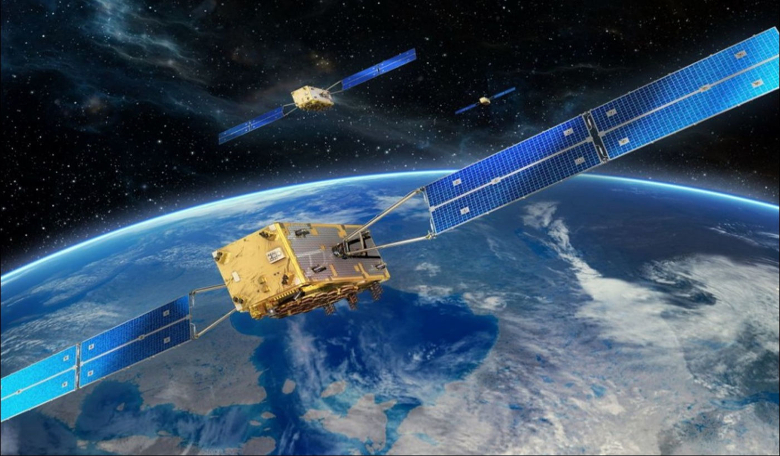The British government is to give RAF Air Command responsibility for command and control of UK military space operations to help defend the country's interests in space. In an announcement preceding the opening of the first ever UK Defence Space Conference in London today (21 May) the defence secretary Gavin Williamson also confirmed his intention to boost the 500 personnel currently working in the UK defence space sector by a fifth over the next five years, taking the total to over 600.
With an increasing amount of the UK's military systems now dependent on space technology, he said Britain must be ready to counter the “intensifying threats” to everyday life emerging in space.
The strategy will include plans to protect UK operations against “emerging space-based threats”, such as the “jamming of civilian satellites used for broadcasters and satellite navigation to support military capabilities”. It will also look at the UK’s current contribution to the EU Galileo programme, as well as exploring ways British companies could benefit from an alternative.
Williamson added: “We must make sure we are primed and ready to deter and counter the intensifying threats to our everyday life that are emerging in space. That’s why I’m announcing the RAF is taking the lead in this area and why we plan to increase the number of personnel covering space.
“Satellite technology is not just a crucial tool for our armed forces but vital to our way of life, whether that be access to our mobile phones, the internet or television.
“It is essential we protect our interests and assets from potential adversaries who seek to cause major disruption and do us harm.
“Britain is a world leader in the space industry and our defence scientists and military personnel have played a central role in the development of the EU’s Galileo satellite programme alongside British companies, so it is important we also review our contribution and how we plan for alternative systems in this crucial area.”
Defence minister Guto Bebb, speaking at the conference, reiterated that space is a “vital part” of the British economy.
“With the launch of this strategy, we are setting our aspirations much higher, to ensure that our industry continues to benefit from this growth in satellite technology.
“We are investing millions into Britain’s most innovative companies to help us launch forward in the space domain.”
Chief of the Air Staff, Air Chief Marshal Sir Stephen Hiller, said: "I am determined to ensure that the RAF's leadership of military space operations transforms our ability to address the growing threats and hazards. In doing this, it is essential that we work jointly across Defence and with partners cross Government and internationally."
Gavin Williamson also confirmed Britain would be reviewing its contribution to the EU's Galileo satellite navigation programme and looking at plans for alternative systems.
As part of the EU's Galileo programme, UK companies have led the way in developing innovative satellite technology and contributing €1.4 billion in funding to the programme and provided vital ground infrastructure in the Falklands and the Ascension Islands.











